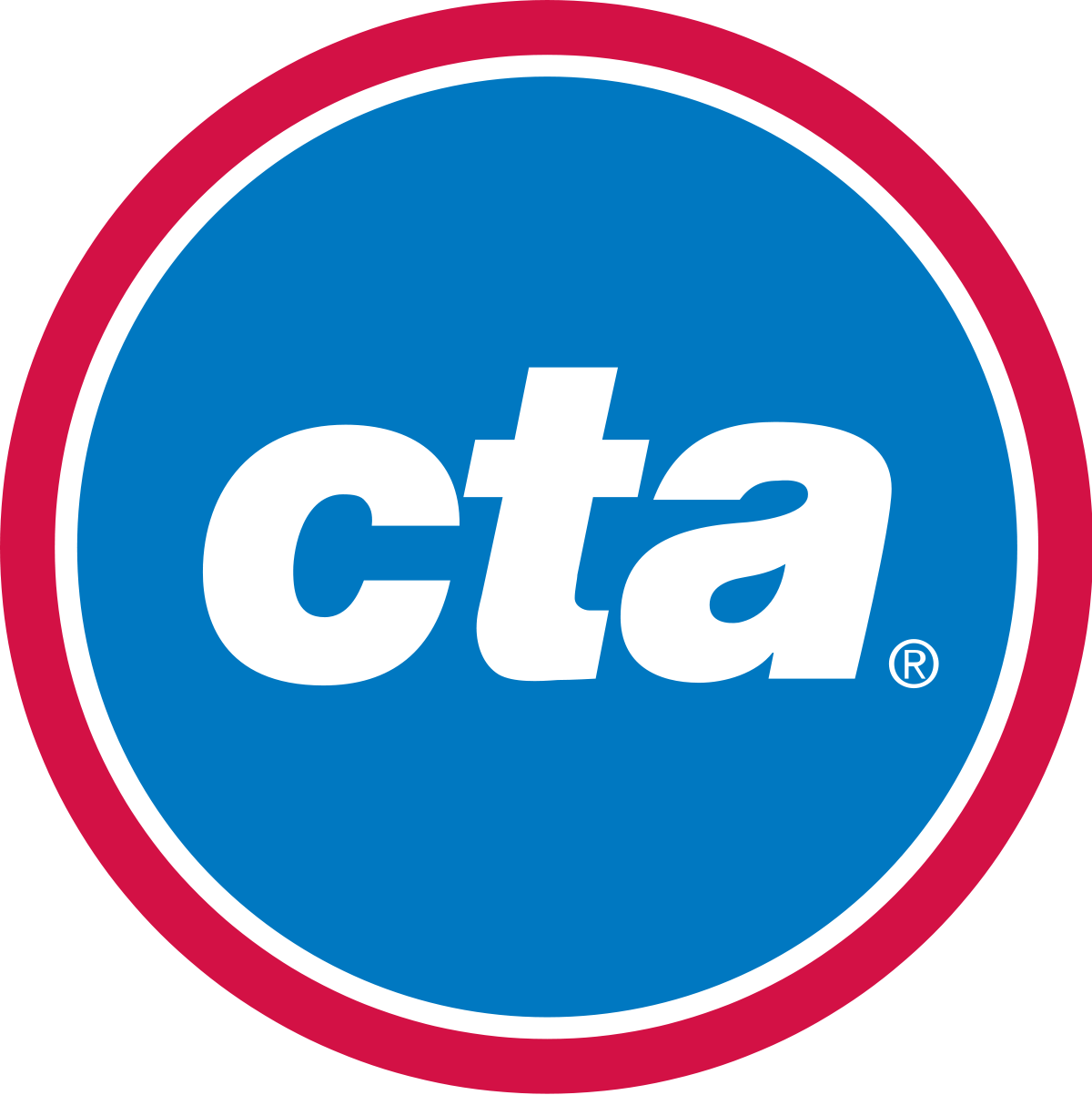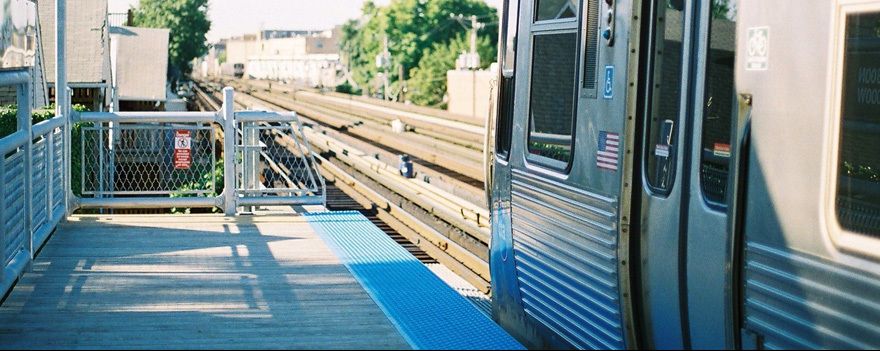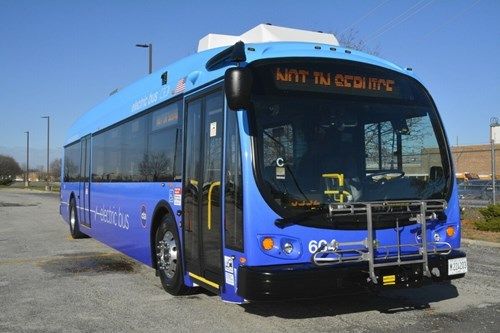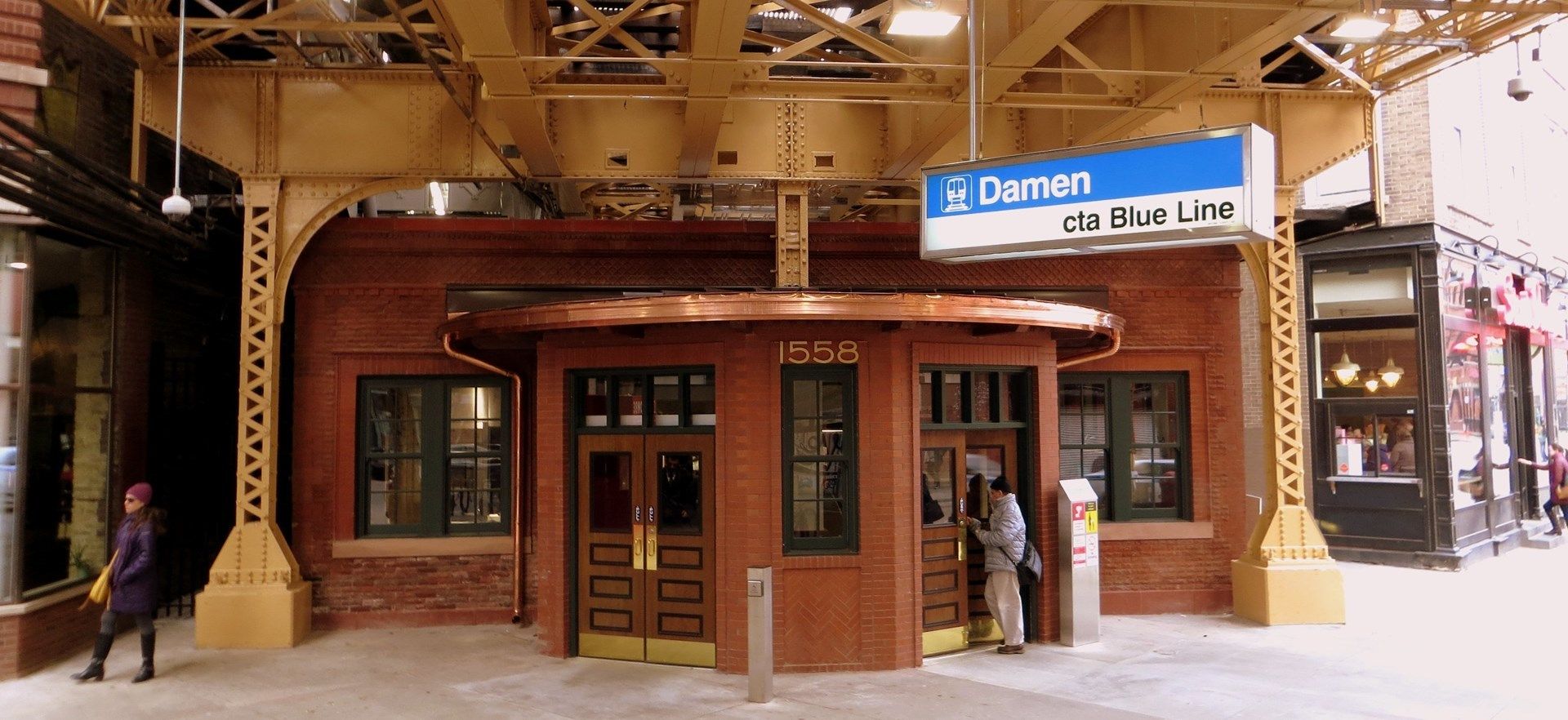Learn about Chicago Transit Authority including our ESG Program, News & Press Releases, Projects, and Team.
Talk to us
Have questions? Reach out to us directly.
Learn about Chicago Transit Authority including our ESG Program, News & Press Releases, Projects, and Team.
About Chicago Transit Authority
- Ridership as of 2024
- 309.2 Million
- Debt Obligations as of 9/1/25
- $4,393,634,317
- FY2024 Operating Budget
- $1.99 Billion
Organization
Chicago Transit Authority is an independent governmental agency created by state legislation. CTA began operating on Oct. 1, 1947, after it acquired the properties of the Chicago Rapid Transit Company and the Chicago Surface Lines. On Oct. 1, 1952, CTA became the predominant operator of Chicago transit when it purchased the Chicago Motor Coach system.
Governance & Oversight
The governing arm of the CTA is the Chicago Transit Board. The Board consists of seven members, with four appointed by the Mayor of Chicago and three appointed by the Governor of Illinois.
The Mayor’s appointees are subject to the approval of the Governor and the Chicago City Council; the Governor’s appointees are subject to the approval of the Mayor and the Illinois State Senate. CTA’s day-to-day operations are directed by Dorval R. Carter, Jr., President.
The current Mayoral appointees are Lester L. Barclay, Alejandro Silva, Michele A. Lee and Rev. Johnny L. Miller. The current gubernatorial appointees are Rev. Dr. L. Bernard Jakes and Rosa Y. Ortiz. There is one gubernatorial vacancy.
Lester L. Barclay serves as Chairman of the Chicago Transit Board.
CTA generates revenue from both farebox collections and nonfarebox revenues, and also receives supplemental funding for operating expenses through the Regional Transportation Authority (RTA).
The RTA was established in 1974 to oversee local transportation operators in the six-county Chicago metropolitan area. Illinois state law requires the three RTA service boards— CTA, Metra (the suburban rail system) and Pace (the suburban bus system) — to recover collectively at least 50 percent of operating costs from farebox and other system revenues.
Service Overview
The Chicago Transit Authority (CTA) operates the nation’s second largest public transportation system, providing mass transit services within the City of Chicago and 35 surrounding suburbs. The service area of the CTA has a population of approximately 3.2 million. Historically, the CTA has carried over 81 percent of the public transit riders in the six-county northeastern Illinois region, which includes the Counties of Cook, DuPage, Kane, Lake, Mchenry, and Will. Transit services provided by the CTA are part of the regional public mass transportation service system in the Northeastern Illinois Transit Region provided through the independent operations of the CTA, the Commuter Rail Division (“Metra”) of the Regional Transportation Authority (the “RTA”), and the Suburban Bus Division (“Pace”) of the RTA (the CTA, Metra, and Pace).
Strategic Goals
Considering the mission statement and core values, the CTA created three overarching goals, which were applicable in the past and will continue to be so in the present and future.
- Safety – CTA aims to ensure that customers and employees have a safe and secure transit system and workplace that prioritizes safety over all aspects of service delivery
- Customer Experience – CTA places a high priority on putting the customer at the center of every decision made and action taken to ensure its services meet or exceed customer expectations
- Workforce Development – CTA invests in its workforce to build on past successes and works toward a bright future creating job and learning opportunities with a focus on Diversity, Equity and Inclusion (DEI)
Image Gallery
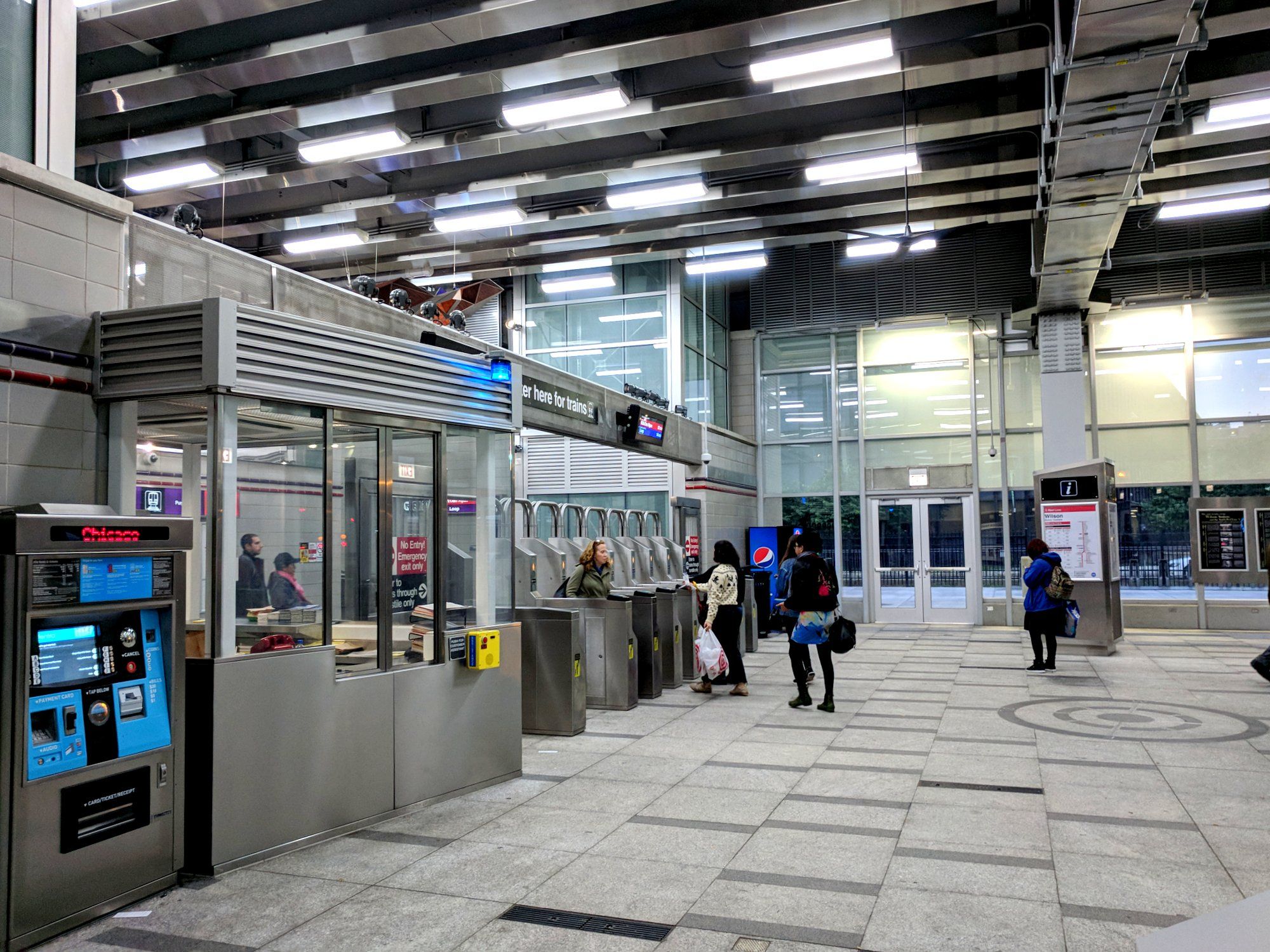




ESG Program
Learn about our environmental, social, and governance program, and how we bring those values to life with green bonds, sustainable projects, and more.
News
By Shruti Singh and Aashna Shah
February 6, 2026 at 12:40 PM CST
The second-largest transit system in the US is benefiting from municipal bond investors looking to put billions of dollars to work.
The Chicago Transit Authority sold about $530 million in sales-tax-backed bonds on Thursday. Proceeds from the deal will finance projects such as the Red Line extension and refund old debt for savings. It comes as the Trump administration threatens to freeze or withdraw funding for transit systems and projects in Chicago and other major cities if they fail to comply with the administration’s policies.
Read More: NY-NJ Hudson Tunnel to Be Halted After Trump Blocked Funding
Inflows into the muni market, subdued supply and CTA’s higher rating with greater revenue made investors more “comfortable” and set the agency apart from other issuers in the region, said Dan Solender, head of municipal investments at Lord Abbett & Co.
Reinvestment Dollars
Investors are flush with cash searching for municipal assets to buy
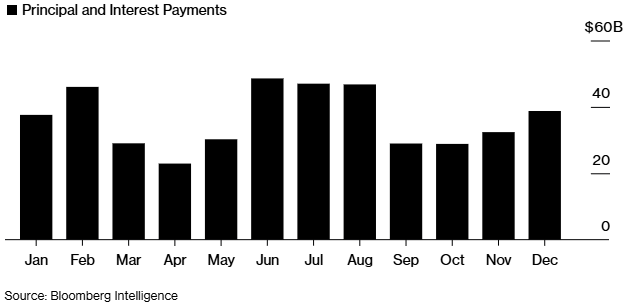
A “big slug” of money looking to be reinvested into the municipal market bolstered demand, said Sweta Singh, a portfolio manager at City Different Investments.
Investors have about $46 billion in principal and interest payments available to funnel back into the market in February, one of the highest monthly amounts this year, according to Bloomberg Intelligence estimates. That demand has been outweighing supply so far this year.
Read More: Munis Beating Treasuries in January as Supply Trails Demand
While analysts on average have projected muni long-term issuance of about $600 billion this year, which would top last year’s record, volume so far has trailed 2025, according to data compiled by Bloomberg. So far in 2026, state and local governments have sold $43.6 billion in long-term debt, 4.6% below the same period a year ago.
Issuance “has been a little lighter than people had expected,” said Ryan Ciavarelli, senior vice president for credit research at Belle Haven Investments.
Singh added that Moody’s Ratings’ recent credit upgrade of CTA also helped the bond sale. The company said in a December report that the raise was rooted in the state’s approval of a revenue increase for transit in the region and that it expects the new funding to exceed the budget shortfall the transit authority previously projected.
Late last year, Illinois lawmakers approved a package for Northeast Illinois with $1.2 billion in new funding. Before the additional revenue was approved, the Regional Transportation Authority had projected that Chicago area transit systems could face budget gaps growing to $834 million in 2027 and $937 million in 2028.
The package “provided financial stability for public transit in the region that is clearly being recognized in the market,” said a CTA spokesperson in an email.
At a time when muni valuations are seen as rich, the CTA deal offered investors higher yields than some other recent debt sales, Ciavarelli said.
Spreads on some maturities for the deal tightened from preliminary pricing, according to the transit authority. CTA sold bonds maturing 2041 with a 5% coupon for a 3.68% yield, 38 basis points above benchmark securities, data compiled by Bloomberg show.
“The deal was oversubscribed, which allowed for us to be aggressive on a repricing,” said the spokesperson for CTA.
Gov. JB Pritzker signed legislation pumping $1.5 billion per year into Chicago-area transit agencies and instituting a new oversight system, ending years of debate over how to govern and finance the CTA, Metra and Pace as they struggle to bounce back from the COVID-19 pandemic.
Lawmakers bridged the $200 million-plus fiscal cliff that had faced the agencies next year by redirecting gas sales tax revenue, dipping into interest on the state’s massive road fund and increasing a Chicago-area sales tax by 0.25%.
The law will also replace the Regional Transportation Authority with a strengthened Northern Illinois Transportation Authority after it takes effect next spring.
Democratic leaders hailed the measures during a Union Station press conference as landmark legislation taking aim at the shoddy service and crime that have all too often plagued bus and rail lines since ridership plummeted five years ago.
“Far from heading toward the abyss as some predicted, we are on the verge of delivering a world-class transportation network,“ said Pritzker, who long indicated he’d sign the bill that passed the Illinois General Assembly in the waning hours of the fall veto session on Oct. 31. “This new law not only averts the cliff but preserves affordability and makes transit safer and more reliable.”
Fares will be collected under a unified system under NITA, and agencies will be subject to independent audits every five years.
The overhaul includes a task force led by the Cook County Sheriff’s Office to coordinate law enforcement across the Chicago-area transit system. It also calls for unarmed transit ambassadors to patrol buses, trains and stations, as well as the introduction of a new mobile application for real-time crime reporting.
Supporters in organized labor and environmental groups celebrated that the law does all that and more without raising fares or service cuts, as the agencies had warned was inevitable before finally landing the transit deal that lawmakers had wrangled over since 2023.
Tolls are expected to increase 45 cents for passenger cars and 30% for commercial vehicles to help further bolster transit coffers, though the Illinois Tollway board still has to vote on potential increases.
“We haven’t raised tolls in the state of Illinois — they haven’t for quite some time,” Pritzker said.
He applauded Democratic leaders who shepherded the legislation in Springfield and singled out west suburban state Sen. Seth Lewis as “the sole Republican who voted to save our transit systems.”
“Transformation takes a little bit of time. … It just doesn’t take one year in order to accomplish all those things. But there is an immediate endeavor to upgrade the service and make sure that we’re providing safer rides for people on transit over the coming year,” Pritzker said.
GOP leaders blasted the legislation as a bailout for “Chicago’s broken transit system,” with downstate transit agencies only expected to receive about $129 million from the package.
“This law permanently diverts more than $1 billion every year from the Road Fund, money that was constitutionally promised to fix roads and bridges, and sends it to prop up transit operations driven by years of mismanagement,” Illinois House Minority Leader Tony McCombie, R-Savanna, said in a statement.
State Senate Minority Leader John Curran, R-Downers Grove, said it will “make life even more expensive for suburban families with tax hikes and surcharges, while reducing suburban representation on transit decisions.”
The incoming 20-member NITA board could include up to 15 members from Cook County, in addition to representatives from Lake, McHenry, Kane, DuPage and Will counties.
The seven-member CTA board will have three mayoral appointees and two each from the governor and Cook County board president.
A new era has begun for transit in the Chicago region. In the early morning hours of October 31, the Illinois General Assembly passed SB 2111, a landmark transit funding and reform bill. The legislation includes an estimated $1.2 billion in new annual operating funding for CTA, Metra, and Pace. This sustainable funding means riders will not experience service cuts or fare increases in 2026 and instead will benefit from continued improvements to service frequency, reliability, and safety in the coming years.
The bill reorganizes the transit system under a new regional authority, the Northern Illinois Transit Authority (NITA), replacing the RTA and taking on new responsibilities including setting fares, enhancing and coordinating service, overseeing long-term capital planning, and leading implementation of unified rider-focused tools such as more seamless mobile ticketing.
NITA’s board will include 20 members with 5 members appointed by the Governor, 5 by the Mayor of Chicago, 5 by the Cook County Board President, and 5 by the Collar County Board Chairs. Starting in 2027, after funding NITA expenses, ADA paratransit, and baseline funding for the Service Boards, remaining operating funding will be distributed to CTA, Metra, and Pace using a new formula that includes key performance-based metrics from the National Transit Database (NTD) and will later transition to distribution via a soon-to-be-developed service standards model that will help guide appropriate levels of service for different communities.
Where does the new funding come from?
The legislation identifies a variety of new revenue streams for transit operations.
- Dedicating existing sales tax on motor fuel: $860 million statewide ($731 million for RTA region and $129 million for downstate transit)
- RTA sales tax increase of 0.25%: $478 million for RTA region, pending approval by the RTA Board after the legislation’s effective date of June 1, 2026.
- New capital revenue from interest on the Road Fund balance: $200 million statewide ($180 million for RTA region and $20 million for downstate transit)
Simplified fare policy and purchasing with no fare increase in 2026
The legislation requires no fare increases for 2026. In the future, instead of each Service Board offering different reduced fares, NITA will have sole authority over all special fare programs for the entire regional transit system. And in 2028, NITA will implement several new fare programs, including fare capping, income-based reduced fare programs, and free and reduced fare programs for survivors of domestic violence and sexual assault.
In addition to setting all fare policy for the regional transit system, NITA will also be responsible for rolling out a unified fare collection system including a mobile ticket app by February 2030.
Improved frequency and reliability through service planning and standards
Beginning in December 2027, NITA will work with the Service Boards to develop a 1-3-year service plan with opportunities for public feedback. The service plan will aim to optimize the location, frequency, and days and hours of service and will address issues like reliability, cleanliness, safety, and coordination among CTA, Metra, and Pace.
The service plan must be consistent with new service standards adopted by the NITA Board that will help determine appropriate levels of service for different communities. These standards will be developed cooperatively between NITA and the Service Boards and will look to peer systems around the world to inform qualitative and quantitative attributes of good public transit. Once the service standards are implemented, NITA will meet with the Service Boards quarterly to ensure operations are continuing effectively and to address any issues related to the standards. NITA will also compile and publish reports comparing actual system performance to service standards. This reform empowers the regional authority to formally weigh in on service issues more regularly and prevent long-term service disruptions.
A safer, more secure system
The legislation requires NITA to develop various new staff positions, task forces, councils, and subcommittees in collaboration with law enforcement agencies throughout the region, as well as riders, social service agencies, and other public safety experts. The NITA Board will ultimately vote on whether to institute a sworn officer crime prevention program and will institute a transit ambassador program by July 2027. Transit ambassadors are trained, unarmed personnel deployed on buses and trains and at stops and stations to support riders. Responsibilities may include wayfinding and other passenger assistance and helping address safety concerns.
Learn more
SB 2111 is landmark legislation that establishes a new regional entity, with changes to board structure, recovery ratio requirements, funding distribution to the Service Boards, advisory councils, the budget process, transit-supportive development, and more. For more details on these changes and how the transition will occur, read RTA’s preliminary bill summary.
Projects
Team

Nora Leerhsen

Tom McKone
Talk to us
Have questions? Reach out to us directly.
